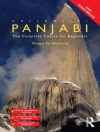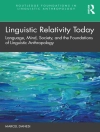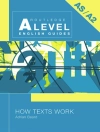To respond to the multilingual turn in language education, this volume constitutes a challenge to the traditional, monolingual, and native speakerism paradigm in the field of Teaching English to Speakers of Other Languages (TESOL) through a translanguaging lens. The chapters offer complex global perspectives – with contributions from five continents – to open critical conversations on how to conceptualize and implement translanguaging in teacher education and classrooms of various contexts. The researchers exhibit a shared commitment to transforming TESOL profession that values teachers’ and learners’ full linguistic repertoires. This volume should prove a valuable resource for students, teachers, and researchers interested in English teaching and learning, applied linguistics, second language acquisition, and social justice.
Tabella dei contenuti
Foreword: Cutting Through the Monolingual Grip of TESOL Tradition – The Transformative Power of the Translanguaging Lens; Angel M. Y. Lin.- Envisioning TESOL through a Translanguaging Lens in the Era of Post-Multilingualism; Zhongfeng Tian, Laila Aghai, Peter Sayer, and Jamie L. Schissel.- Part I: Theorizing Translanguaging in TESOL.- Broadening the View: Taking up a Translanguaging Pedagogy with All Language-minoritized Students; Kate Seltzer, and Ofelia García.- The Need for Translanguaging in TESOL; Sabrina F. Sembiante, and Zhongfeng Tian.- Framing the Realities of TESOL Practice through a Translanguaging Lens; Graham Hall.- Part II: “No, Professor, That is Not True”: First Attempts at Introducing Translanguaging to Pre-service Teachers; Elena Andrei, Amanda Kibler, and April Salerno.- Reenvisioning Second Language Teacher Education through Translanguaging Praxis; Matthew R. Deroo, Christina M. Ponzio and Peter De Costa.- Learning to Teach English for Justice from a Translanguaging Orientation; Elizabeth Robinson, Zhongfeng Tian, Elie Crief, and Maíra Lins Prado.- Pedagogical Sismo: Translanguaging Approaches for English Language Instruction and Assessment in Oaxaca, Mexico; Julio Morales, Jamie L. Schissel, and Mario López-Gopar .- Incorporating Australian Primary Students’ Linguistic Repertoire into Teaching and Learning; Marianne Turner.- Translanguaging as a Decolonization Project?: Malawian Teachers’ Complex and Competing Desires for Local Languages and Global English; Sunny Man Chu Lau.- Part III: Translanguaging in TESOL Classrooms.- Tower of Babel or Garden of Eden? Teaching English as a Foreign Language through a Translanguaging Lens; Mirjam Günther-van der Meij and Joana Duarte.- “Colibrí” ‘Hummingbird’ as Translanguaging Metaphor; Brian Seilstad and Somin Kim.- Translanguaging and Task Based Language Teaching: Crossovers and Challenges; Corinne Seals, Jonathan Newton, Madeline Ash and Bao Trang Thi Nguyen.- Translanguagingfor Vocabulary Development: A Mixed Methods Study with International Students in a Canadian English for Academic Purposes Program; Angelica Galante.- EFL Instructors’ Ambivalent Ideological Stances Toward Translanguaging: Collaborative Reflection on Language Ideologies; Christian Fallas Escobar.- Chapter 15. Effects of Teachers’ Language Ideologies on Language Learners’ Translanguaging Practices in an Intensive English Program; Laila Aghai, Peter Sayer, and Mary Lou Vercellotti.- Conclusions: Translanguaging as Transformation in TESOL; Peter Sayer.
Circa l’autore
Zhongfeng Tian is an Assistant Professor of TESL Teacher Education/Applied Linguistics at the University of Texas at San Antonio, USA. His research interests include bi/multilingualism, bilingual education, translanguaging, TESOL, teacher education, and critical pedagogies. He was a former English teacher in China, Cambodia, and the U.S. He has co-edited a special issue entitled ‘Positive Synergies: Translanguaging and Critical Theories in Education’ with Holly Link for the Translation and Translanguaging in Multilingual Contexts (TTMC) journal.
Laila Aghai is an Assistant Professor of TESOL/ELL Education and the Director of the Indigenous Language Education Program at the University of North Dakota, USA. As a language educator, she has taught English as a second and foreign language in the U.S. and overseas. Her research is focused on TESOL, translanguaging, applied linguistics, multilingual education, and language ideologies. She serves on the editorial board of the Journalof Language, Identity and Education.
Peter Sayer is an Associate Professor of Language Education Studies at the Ohio State University, USA. His work in the U.S. and Mexico focuses on TESOL, bilingual education, sociolinguistics, and language education policy. He is the author of Tensions and Ambiguities in English Language Teaching (2012, Routledge). He is a former Fulbright Scholar to Mexico where he was a lead consultant to the Mexican Ministry of Education for the National English Program in Primary Schools. He is currently the editor of the TESOL Journal.
Jamie L. Schissel is Associate Professor, TESOL at the University of North Carolina at Greensboro, USA. Jamie’s research centers on equity in relation to educational policies and assessments in participatory action research projects with linguistically and culturally diverse communities in the United States, Mexico, and Peru. Her book Social Consequences of Testing for Language-minoritized Bilinguals in the United States (Multilingual Matters) was published in 2019. She has served as a co-editor of the special issue “The Construct of Multilingualism in Language Testing” for Language Assessment Quarterly (December, 2019).












